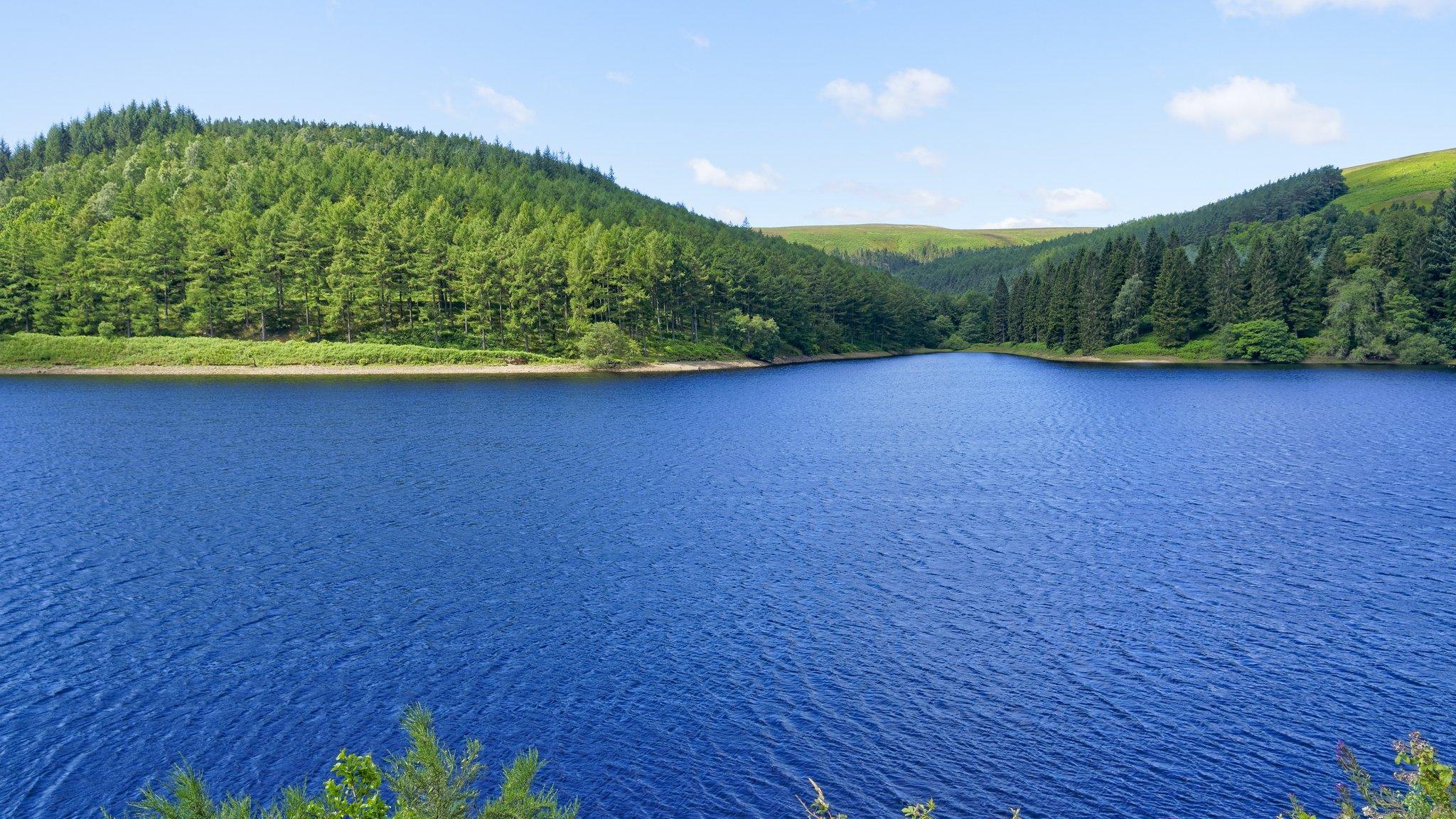The hidden dangers of summertime swims
- Published
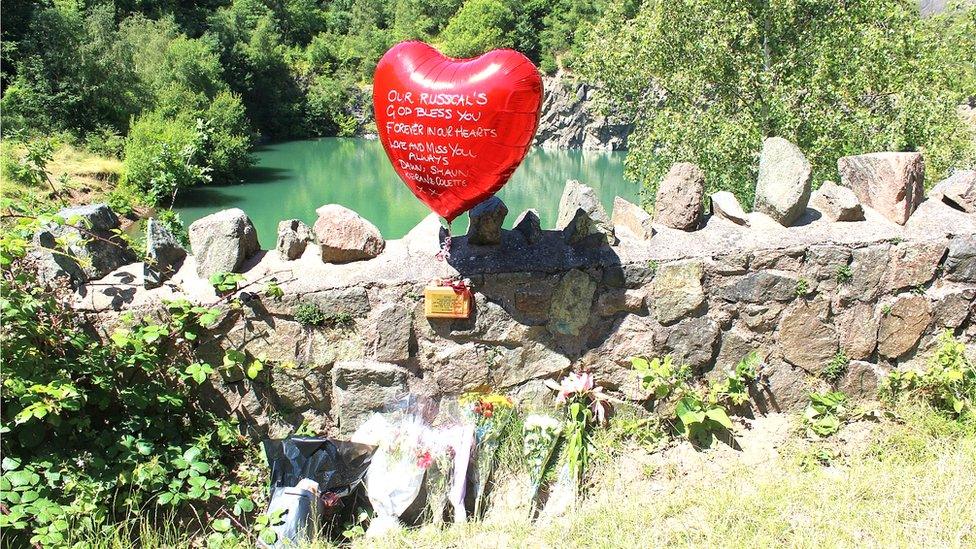
If warning signs are ineffective at preventing people from entering the water, could memorials do the job?
Since the 2022 heatwave started on 8 July, 13 people have drowned in UK open waters, ranging in age from 13 to 70.
They include a 14-year-old boy who drowned in the River Thames after getting into the water in Hampton, west London.
And 16-year-old Kalen Waugh, who died in Salford Quays.
And Robert Hattersley, 13, who died near Ovingham in Northumberland.
And Londoner Nicolae Topa, whose body was recovered after he went to swim at Fairlop Waters in Ilford.
Behind these dry announcements, a family is being ripped apart.
Beckie Ramsay's son Dylan drowned in a Lancashire quarry 11 years ago: "When I walked into that mortuary and saw my beautiful, perfect firstborn son lifeless, not breathing, not moving, just looking perfect, I could not hold myself together. I hugged his chest and held him so tight. I sobbed and begged for him to come back to us.
"I would give anything to have known then what I do now. I am certain that had I known the dangers in and around open water, or had Dylan known how cold water affects the body, he would still be with us now."
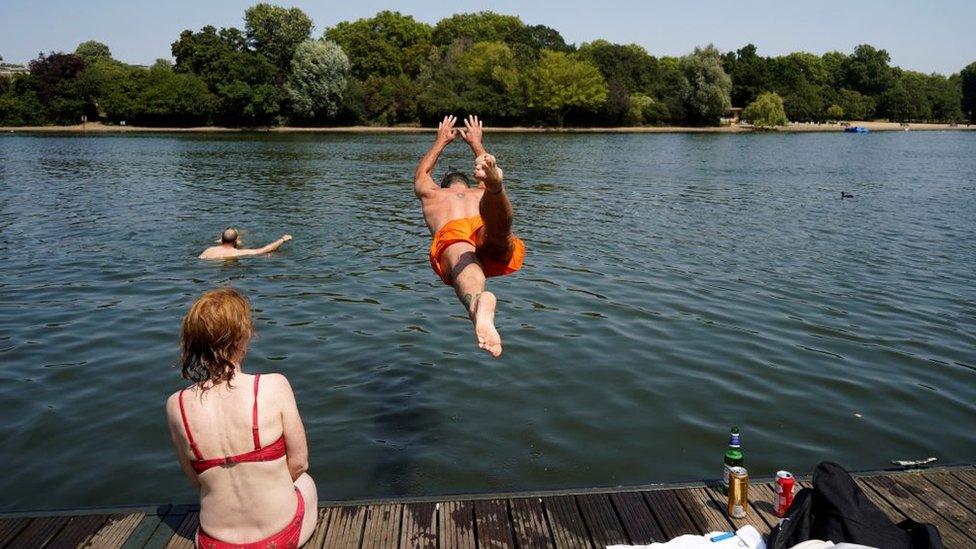
No matter how hot it is out of the water, British ponds and lakes remain cold
Last year 277 people drowned in UK open waters; of those, 70 entered the water for recreational purposes. Lives were lost in disused quarries, rivers, lakes, reservoirs and the sea.
There are also thousands who survive so-called drowning events, who are left with severe, and often permanent, life-changing injuries.
For some reason, messages about the dangers are just not getting through. This year's deaths appear to be no different from previous ones. Sometimes even the location is the same. Three teenage boys have drowned at East Quarry at Appley Bridge, near Wigan.
The first was in 1999, when 17-year-old Craig Croston died. In 2013, Miracle Godson, 13, died. Last week, Jamie Lewin suffered the same fate. He was 16.
In 2010, a 15-year-old girl, Kajil Devi, drowned at the Cotswold Water Park near Cirencester. So did Cory Nicholson, 21, in 2019. And earlier this week, so did a man in his 20s.
There have been five deaths at Gullet Quarry in Malvern in the past 14 years, including two within just a few days of each other.
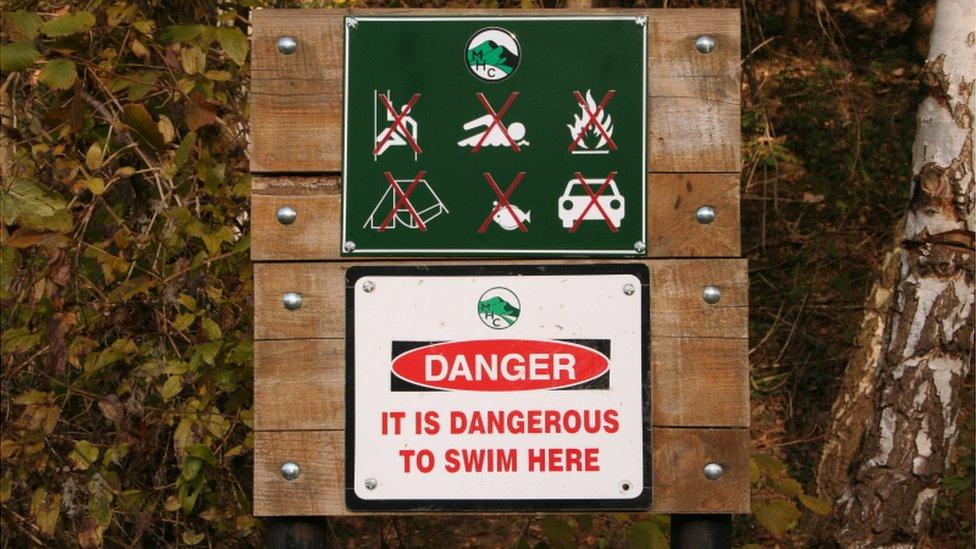
Warning signs appear to have little effect
Warning signs surround both of these quarries. They are fenced off. At Appley Bridge, people pull out sections of fencing by attaching chains to cars.
They dig holes to crawl under the fence and use car jacks to force the bars apart.
In Malvern, an ancient bylaw was resurrected, making it illegal to "bathe in any pond, lake or stream on the Hills where bathing has been prohibited".
The notices are ignored, the prospect of prosecution is seemingly no deterrent.
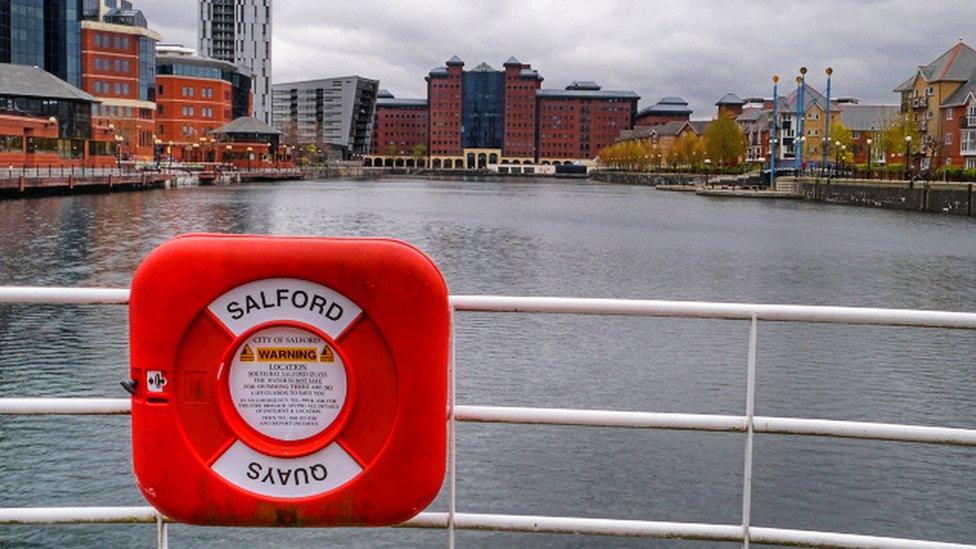
Nineteen-year-old Ngapee Merenga died in Salford Quays last year

Float to live
If you're struggling in the water, fight the urge to thrash around
Lean back, extend your arms and legs
Gently move them around to help you float if you need to
Float until you can control your breathing
Only then, call 999 or 112 for help or swim to safety
Advice from the RNLI

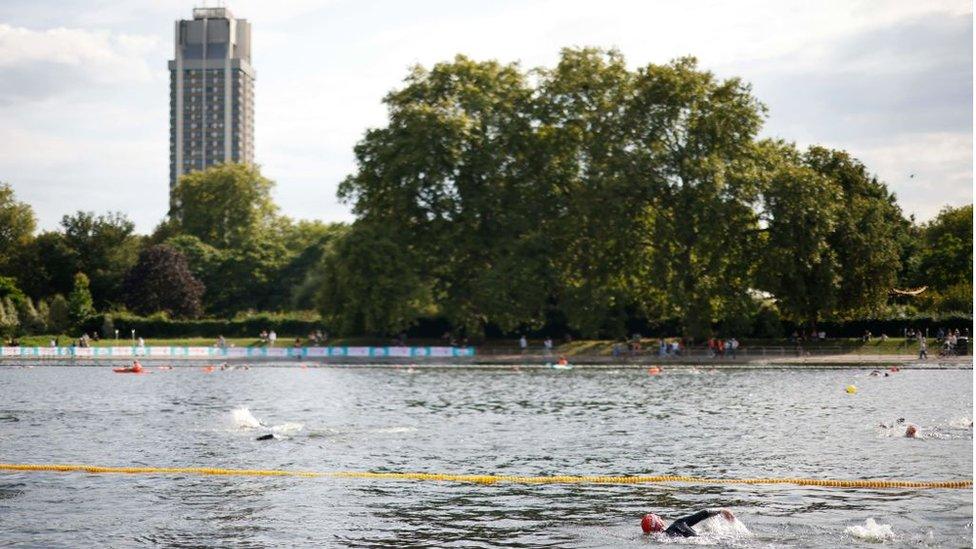
Swimmers participate in an open water event at the Serpentine in Hyde Park
People who drown are not necessarily poor swimmers. The combination of hot weather, cold water and often the influence of a few beers can render anyone incapable of surviving.
Tom Mullen, an open water swimmer, said "nothing can feel as refreshing as wading into a cool lake on a hot summer's day".
But he also warned of the precautions and perils: "Organised swims recommend the use of wetsuits. These give extra buoyancy and help you zip through the water faster and more smoothly than usual. And of course, they also give you protection from the often deceptively cold waters.
"Even in supervised swims there is an unsettling lack of opportunity for rest. The circular courses can be as long as 1,000 metres, so there's no stopping for a breather in the way you would after a 25m length at the pool. It can suddenly feel very isolating to find yourself out of breath, weary and far from the lakeside.
"Lakes are also filled with weeds, which can quickly tangle the limbs and tire you out if you're not experienced and nimble enough to know how to navigate away from them.
"Now imagine this on a boozy sunny evening, with no supervision, no wetsuit and no rescue team on standby.
"While an unsupervised swim can seem romantic and even more fun, it's very easy to see how things can quickly go wrong."
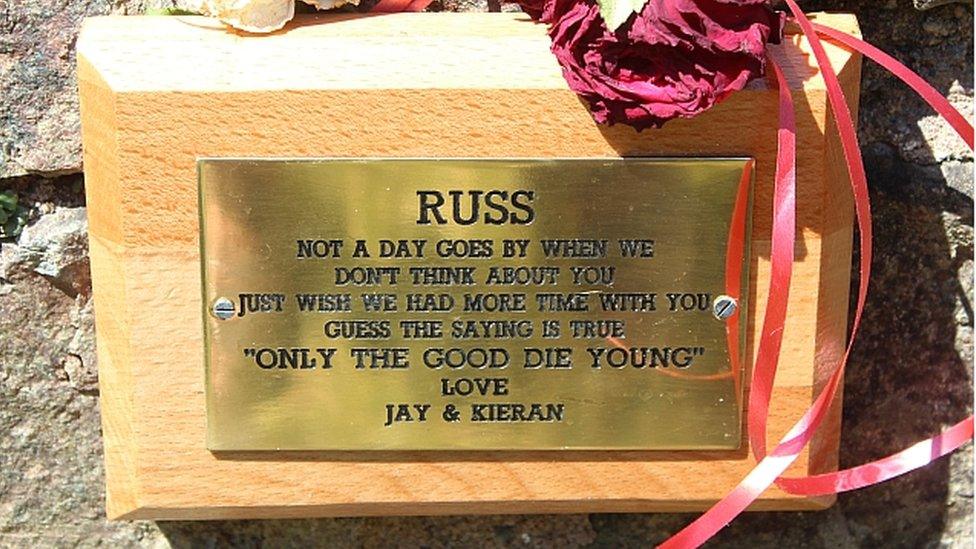
Russell O'Neill was one of the men who drowned at Gullet Quarry in the Malvern Hills in 2013

Open water hazards
The depth of the water - this changes and is unpredictable
Submerged objects may not be visible
A lack of safety equipment and increased difficulty for rescue
The shock of cold water can make swimming difficult and increase the difficulty in getting out of the water
Strong currents can rapidly sweep people away
Uneven banks and riverbeds
The Royal Life Saving Society

As well as universal dangers, some bodies of water have specific hazards. Tidal waterways are difficult to deal with.
Mark Pussey, a crew member at RNLI Chiswick, said although he understood the appeal of going in to the river, "the advice is really steer clear of the Thames - certainly the tidal Thames, at all costs, because it's an incredibly dangerous river to find yourself in either on purpose or by complete accident.
"Just to keep along with the flow and to basically not go anywhere, you'd have to be the standard of an Olympic swimmer. You tire very quickly.
"The water here is brackish. It's not fresh water nor is it salt so the buoyancy isn't there like it is in the sea. It's very muddy and silty and people can get trapped in that mud.
"The tide comes in and they find themselves in all sorts of difficulties. There's tons and tons and tons of underwater obstructions people throw in - shopping trolleys, bikes.
"Steer clear of the river even on hot days."

Anything below 15°C is defined as cold water and can seriously affect your breathing and movement, so the risk is significant most of the year. Average UK and Ireland sea temperatures are just 12°C. Rivers such as the Thames are colder - even in the summer.
Cold-water shock causes the blood vessels in the skin to close, which increases the resistance of blood flow. The heartrate is increased and blood pressure goes up, and it can therefore cause heart attacks, even in the relatively young and healthy.
The sudden cooling of the skin by cold water also causes an involuntary gasp for breath. Breathing rates can change uncontrollably, sometimes increasing as much as tenfold. All these responses contribute to a feeling of panic, increasing the chance of inhaling water directly into the lungs.
It only takes half a pint of water to enter the lungs for a fully grown adult to start drowning.

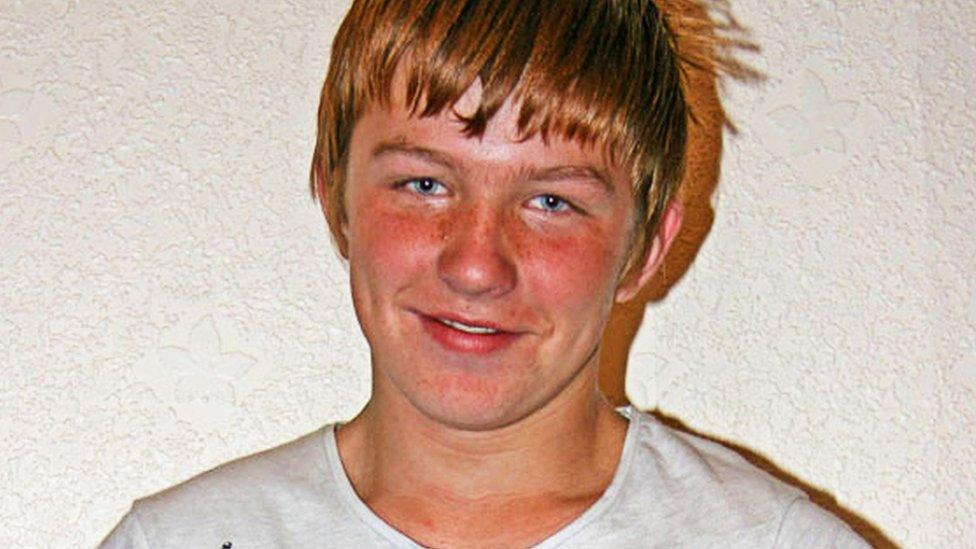
Dylan Ramsay was a very capable swimmer
Dylan Ramsay would have been 24 this year.
Ms Ramsay now raises awareness of the dangers of swimming in cold water, with her campaign Doing it for Dylan: "We need everyone to understand the risks, the dangers," she said.
She described Dylan as a strong lad and a very capable swimmer. But that wasn't enough when he and two friends went swimming in Hill Top Quarry in Whittle-le-Woods on a hot Sunday in July 2011.
"They had been in the water for around 20 minutes, swimming around as hundreds of young lads do every single year.
"Dylan shouted for help and one friend called 999. A group of men planning on diving there, saw his distress and ran down the hill, stripping off their clothes as they went to help him. One pulled him on to a small island in the quarry and started to perform CPR until the emergency services arrived, but they were all too late.
"After having been under the water for just three minutes, he was pronounced dead.
"My husband told me my son had passed away. I screamed. It was much more than a scream. It's a sound I did not know a person could make."
Related topics
- Published15 July 2022
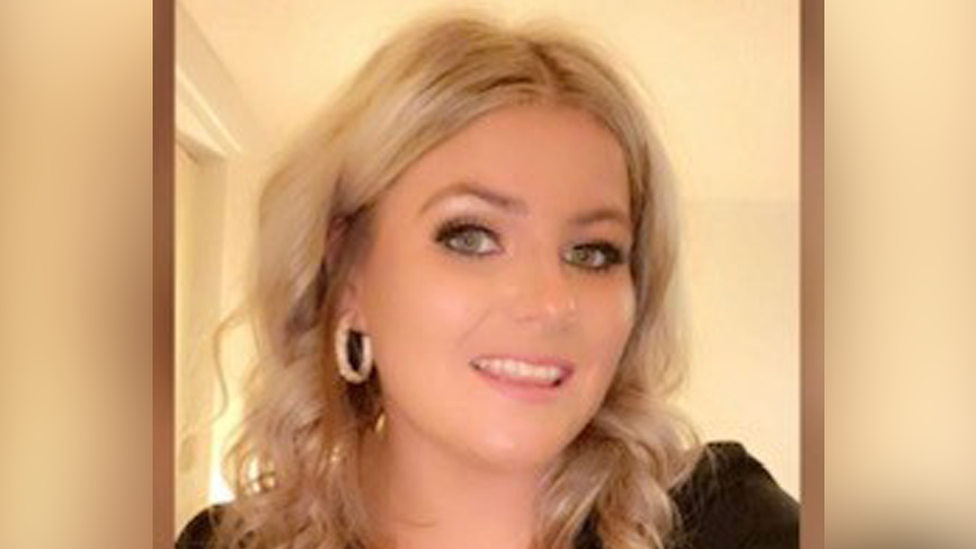
- Published12 July 2022
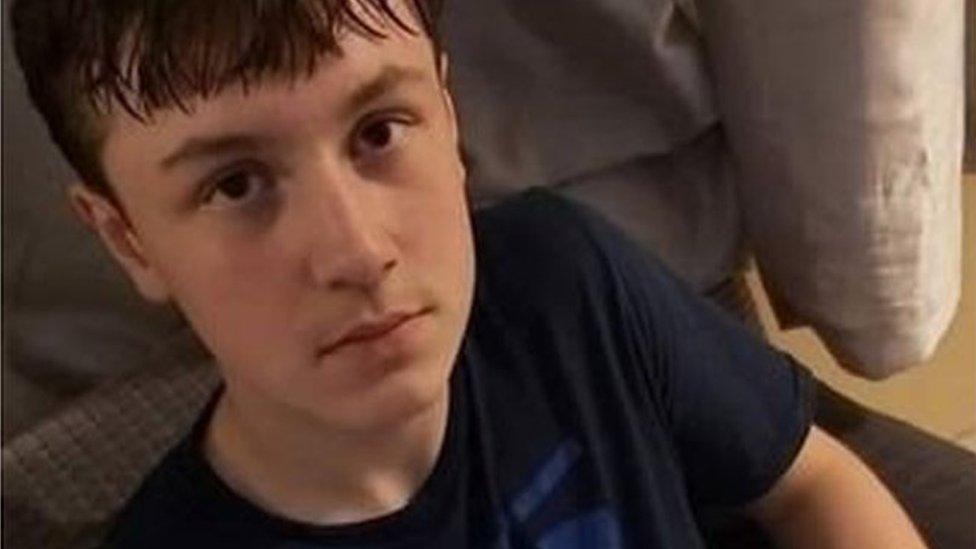
- Published12 July 2022
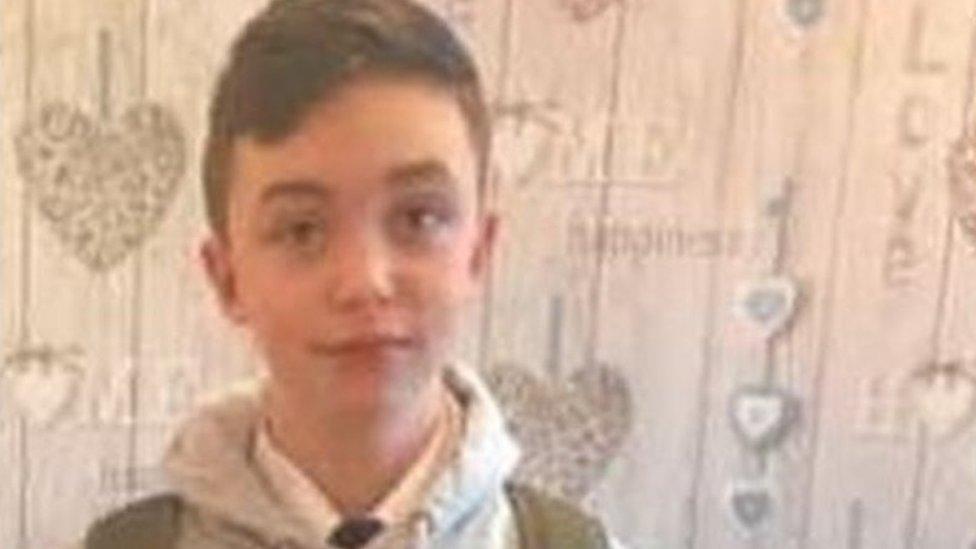
- Published19 July 2022

- Published18 July 2022
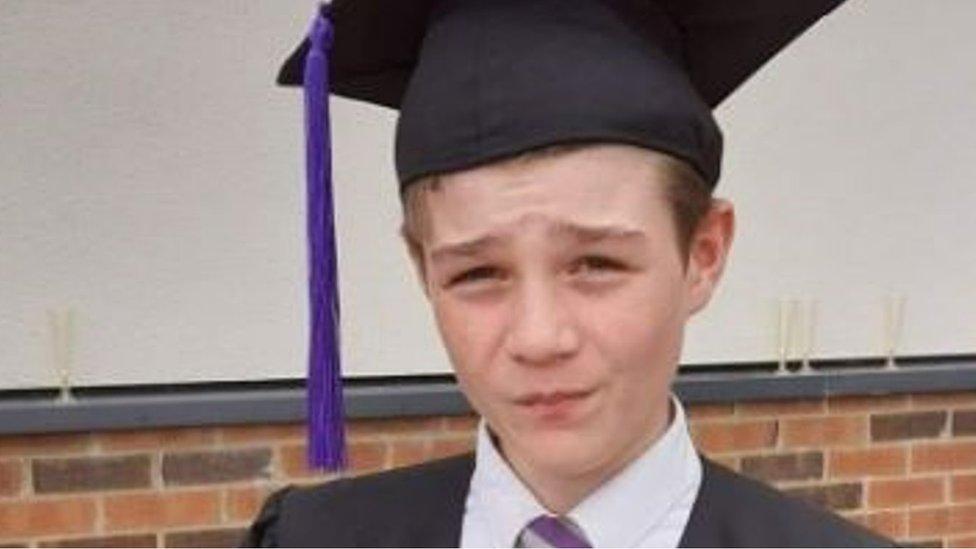
- Published24 July 2021
